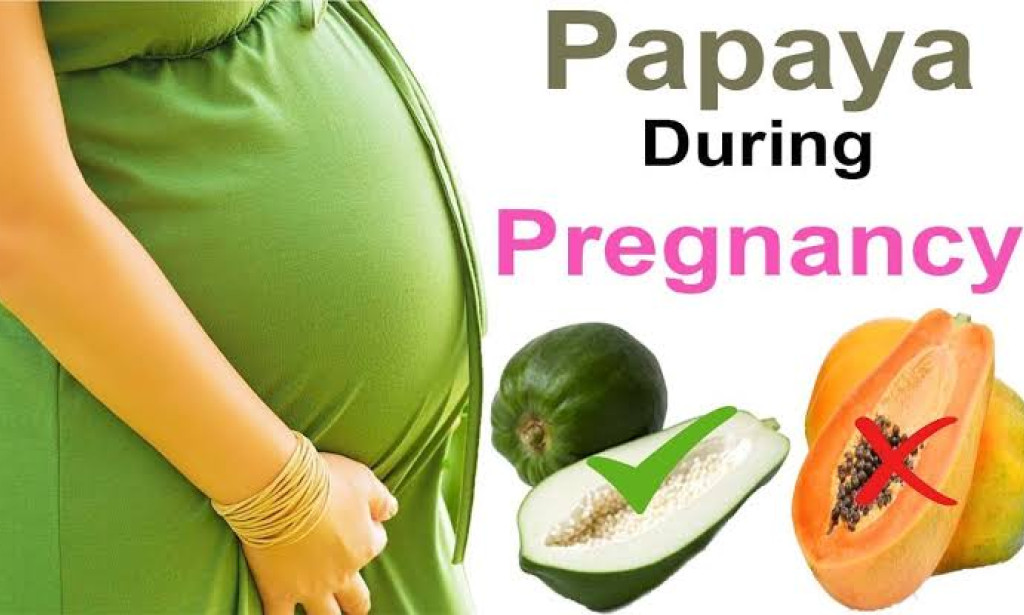Eating unripe paw paw (also known as green or immature papaya) during pregnancy can have health implications, as it contains a substance called papain, which is an enzyme that can stimulate contractions of the uterus. This can lead to miscarriage or premature labor, especially if the paw paw is consumed in large amounts.
Moreover, unripe paw paw also contains high levels of latex, which can cause allergic reactions in some individuals. In addition, it may also cause digestive problems such as diarrhea and stomach upset.
On the other hand, ripe paw paw is considered safe to eat during pregnancy, as it does not contain high levels of papain or latex. Ripe paw paw is a good source of vitamins and minerals, including vitamin C, folate, and potassium, which are important for a healthy pregnancy.
It is always best to consult with a healthcare provider before adding any new foods to your diet during pregnancy, especially if you have any concerns or underlying health conditions.
Below are health implications of eating unripe paw paw as a pregnant woman:
1. Causes Uterine Contractions:
Latex in unripe papaya or even partially ripe papaya has papain, which may stimulate prostaglandin and oxytocin, hormones that can lead to uterine contractions and premature labour. Papaya can cause miscarriage, as it is a potent emmenagogue, which stimulates and increases menstrual flow. It must be avoided completely in early pregnancy. This is the period when the placenta is being formed, and the presence of an insignificant amount of latex can potentially harm the womb.
2. Risk of miscarriage: Eating unripe paw paw during pregnancy can increase the risk of miscarriage due to the presence of the enzyme papain, which can stimulate contractions of the uterus.
Risk of premature labor: Consuming unripe paw paw in large amounts can also cause premature labor, as it can cause the uterus to contract before the baby is fully developed.
3. Impedes Fetal Development:
Pepsin and papain can be detrimental to fetal survival and development. Studies report that eating papaya during pregnancy can hamper implantation, increase the risk of pregnancy loss post-implantation, and pose potential harm to the embryo.
3. Digestive problems: Unripe paw paw may cause digestive problems such as diarrhea, stomach upset, and abdominal pain due to the high concentration of papain.
4. May Cause Haemorrhage and Oedema:
Unripe papaya can raise vascular pressure and even lead to internal haemorrhage or bleeding in the placenta. Placental bleeding or haemorrhage can cause pregnancy and delivery-related complications. Papaya can affect the development and function of the placenta.
5. Nutrient deficiencies: Eating unripe paw paw instead of ripe paw paw may cause nutrient deficiencies, as unripe paw paw contains fewer vitamins and minerals than ripe paw paw. This can have negative implications for the health of the developing fetus.
6. Abortifacient and Teratogenic:
Papain and chymopapain are two enzymes substances present in papaya, which are both teratogenic (harmful to the development of the foetus) as well as abortifacient (abortion causing).
7. Stimulates Oestrogen Production:
The papain in papaya also helps to regularise the menstrual cycle. While menstruation never happens in pregnancy, bleeding through the vagina is a sign of impending abortion or ectopic pregnancy. Papaya raises body temperature and enhances oestrogen production in the body.
8. Weakens Vital Fetal Membranes:
Papain is often used for cell dissociation, as it is a proteolytic enzyme. It is known to retard cell growth and hamper the development of the tissue in the foetus.
9. Allergic reactions: Unripe paw paw contains high levels of latex, which can cause allergic reactions in some individuals. These reactions may include hives, itching, and difficulty breathing.


You must be logged in to post a comment.